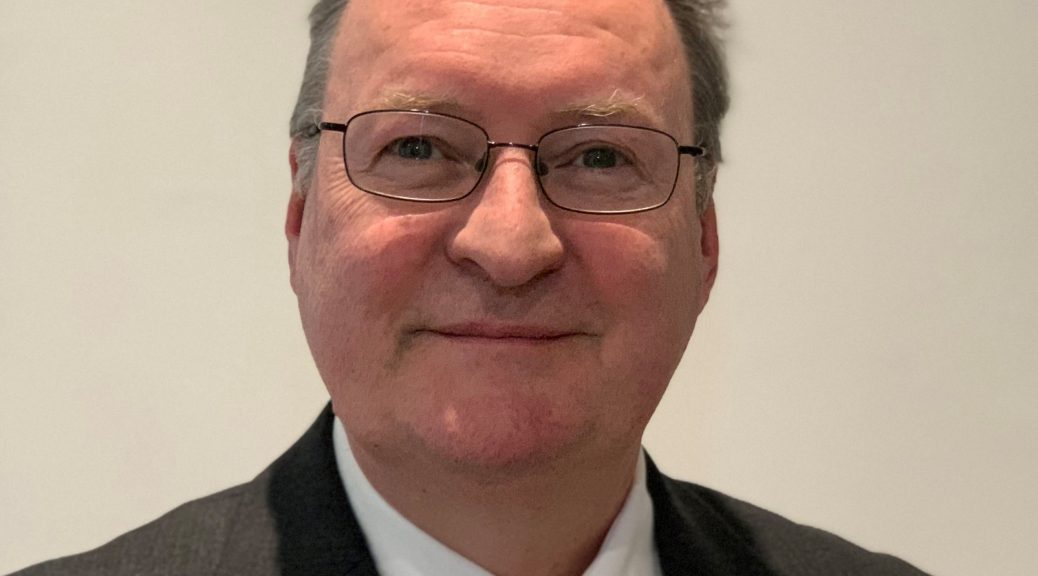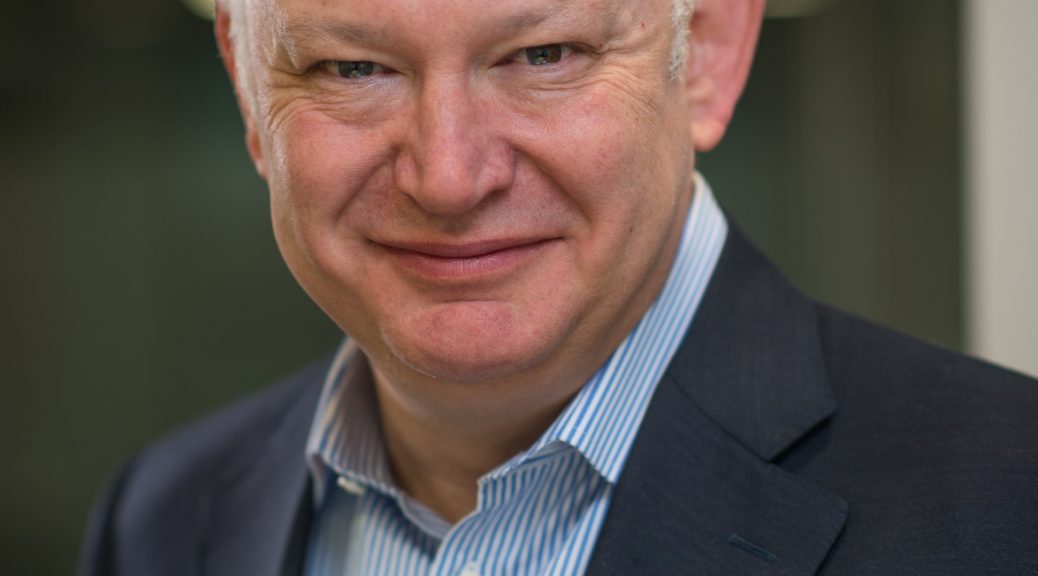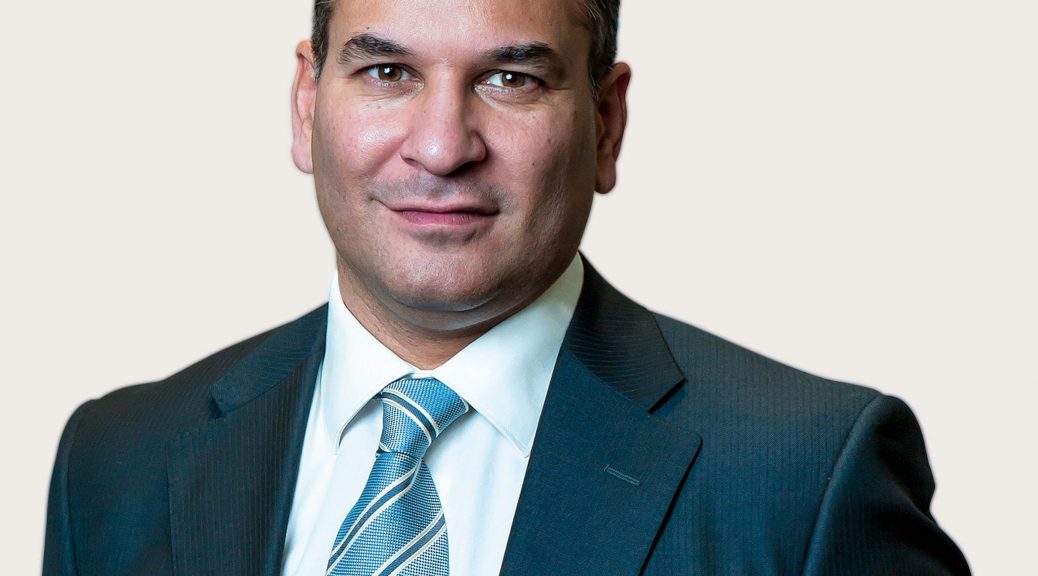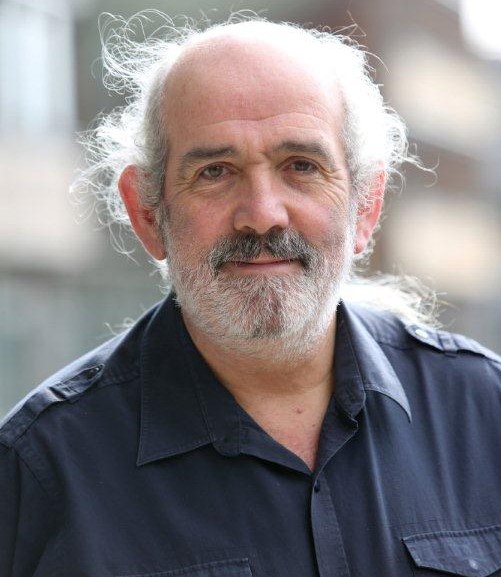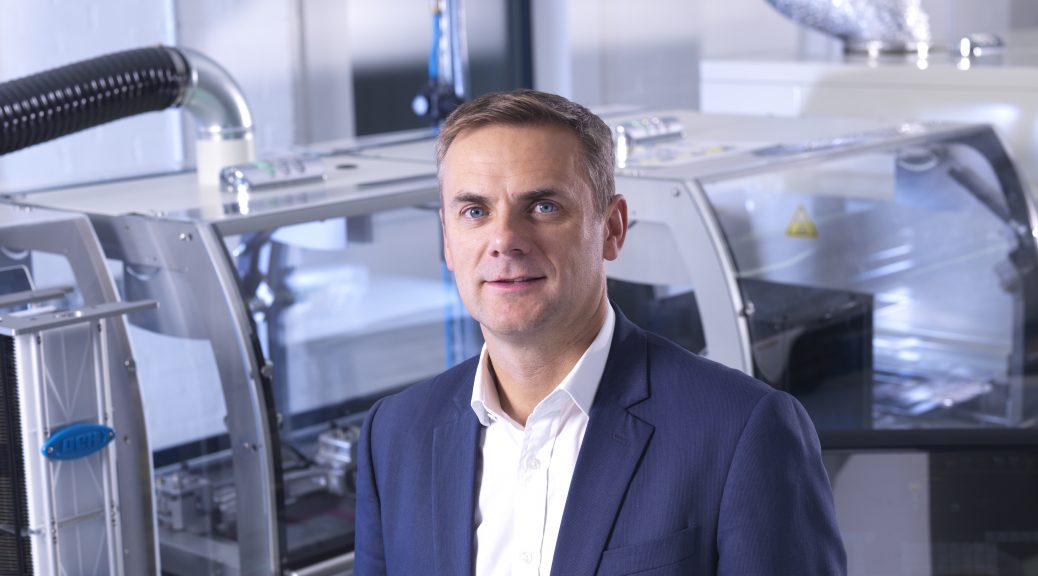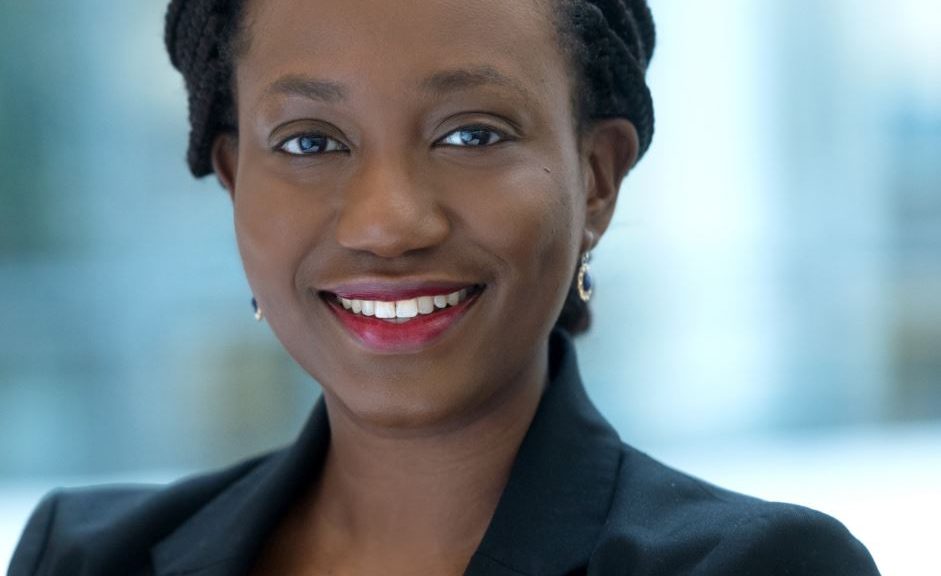
As an A level student, Simon Duncan wasn’t sure what he wanted to do for a career. His mother would ask him what he wanted to do, and he would reply with vague ambitions of becoming a pilot or a nuclear scientist, never quite settling on anything permanently.
With his three A levels in maths, physics and chemistry almost complete, Simon decided to visit the careers room in his school for inspiration. It was 1979, and the careers room consisted of little more than a shoebox containing cards with different job titles written on each. There were holes in the box, and students would write each of their subjects onto a piece of paper and attach it to a knitting needle and push them through a hole and then pull them out to reveal career suggestions! A single card was pierced by all of Simon’s needles and it said Chemical Engineer.
At the time, Simon didn’t know what a Chemical Engineer was, but, given that he was interested in chemistry, he thought it sounded like a good idea – and, believe it or not, that’s how his career started. Here he reflects on that journey …
Making a start in chemical engineering
“There must have been more than one hundred cards in that box, so my three needles piercing the card that read Chemical Engineering seemed like fate. I was already interested in nuclear reactors and particle physics and had written essays on the subject at school, so I was happy when that career option came out of the box.
I set about researching universities and decided that, if I was going to commit to being a chemical engineer, I wanted to do my degree at one of the best institutions in the world, so I applied to Imperial College of Science and Technology in London and was accepted. I graduated from Imperial College in 1983, but, when I stepped out into the world of work, I was met with very few job opportunities, thanks to a severe economic recession. Despite that, I managed to join a London-based graduate scheme at Davy McKee, a multinational chemical engineering contractor.
From graduate to lead chemical engineer
One memory sticks out in my mind during my early days at Davy McKee. We were designing an ammonia plant for ICI and among the team was a man who stood out. He would sit in the middle of the working area surrounded by technical documents and whenever anybody on the team wanted to know something about the project, they sought this person’s advice. Eager to find out more about his role, I asked him why everyone turned to him for decisions and he told me that he was the lead chemical engineer. Here was an engineer who seemed to know everything about chemical engineering, and also took full responsibility for the big decisions. I knew straightaway that I wanted to work towards becoming a lead chemical engineer as well.
My chance at being the lead chemical engineer came sooner than I expected, at age 25. Four years on from joining Davy McKee, the head of process engineering called me into his office to brief me on an English China Clay project, a mineral plant at Indian Queens in Cornwall that had to be completed and commissioned. The assignment was due to last six weeks, then we would hand over the plant to English China Clay to produce kaolinite, the chemical used to make paper white. At the meeting was an important-looking man who I assumed was the lead chemical engineer and that I would be working alongside him, learning on this important project. Not so – he was the graduate trainee, and my boss was now entrusting me to run the show and commission the new plant. It was so unexpected; I was now the lead chemical engineer.
Developing a thirst for business
During our initial meeting with the engineers at the English China Clay site, we learned that half of the plant was actually ready to go live, and, in addition, that the plant was designed to work half on/half off. Yet the plant had not been started, despite the company needing it to be operational as soon as possible. All that was needed was for the lead chemical engineer to sign things off and give the green light.
I had a discussion with the decision-makers of the new plant and explained that half the plant was ready and asked them if they wanted that half to be commissioned immediately, and the whole plant once the other half had been completed, and they agreed emphatically. To their surprise and delight, the following morning half the plant was up and running. The delay in commissioning that half of the plant was due entirely to the fact that a lead chemical engineer was needed to evaluate the plant and ensure that everything was in perfect working order before it could be started – none of the other engineers on the project had the authority to do that. This was a milestone in my career, one I had been working towards for four years.
The other half of the plant was completed in the next three weeks, so the project took half the contracted time. That was a significant success for Davy McKee and the company earned a bonus. That experience got me thinking about the economics of projects: how do contracts come together and how does a company make money and profit? I began asking questions about how we cost proposals, for example, how does a business know how many labour hours to allocate to a given project and that the quotes given turn out to be accurate? When you do your chemical engineering education, you are taught some economics, so you get a basic understanding of supply and demand and company finance, but it doesn’t delve further. I became extremely interested in learning more about how businesses work.
Unlocking career options with an MBA
At this point, I started talking to other people about my interest in learning about the intricacies of business. It was my current girlfriend who suggested an MBA; at that time, I knew next to nothing about MBAs. After doing research on what an MBA is and how they help to expand your knowledge and opportunities, I realised that the career potential following an MBA would be incredible – some graduates were receiving five or six job offers and doubling their salaries after graduating. It was during this research phase that I discovered the Sainsbury Management Fellows (SMF) scholarship which, if successful in making an application, would pay for tuition and accommodation for my MBA programme. This would be transformative – I could do an MBA straightway and not have to get a loan or save up for several years.
I contacted the Institution of Chemical Engineers which promoted the SMF scholarship to find out how to apply, only to learn that I had missed the application deadline by two days. However, I must have said something convincing during the conversation because I was asked to apply despite the missed deadline.
I really enjoyed the whole process. In addition to the application form, I had a three-hour panel interview which covered everything from my education and career experience, to what I had accomplished in engineering, why I wanted to do an MBA and how I planned to use the new skills after graduating. I talked about my experience at Imperial College London, my work at Davy McKee including my progression to lead chemical engineer and gaining chartered status. I also gave a presentation on a unique project that I had worked on: the first ever plant to encapsulate nuclear waste in concrete and store it, which the panel found fascinating. When they asked what I wanted to do when I got my MBA, I said I wanted to become a strategic planner at Davy McKee and be more involved in the future of the business.
I received a conditional SMF scholarship offer. After successfully completing the GMAT, I was offered a place at my first-choice business school, INSEAD. Then my SMF scholarship was confirmed and I was on my MBA journey.
The ‘golden ticket’ effect
When I graduated from INSEAD in 1991, having learned a great deal about finance, business, and strategy, I was raring to go. We used to call an MBA a ‘golden ticket’ because, career-wise, one could go anywhere with it – the possibilities were limitless. Sadly, my graduation coincided with another global recession, and the job market wasn’t as ripe and fertile as it should have been. In fact, when I left INSEAD, fifty per cent of its graduates did not have one job offer, let alone the typical five or six.
Despite the downturn, I was fortunate to get a job offer from the chemical company Eli Lilly to work on its European inventory and was considering it before fate intervened. A friend I hadn’t seen for a while invited me to a birthday party and I dithered about going, but then decided why not, nothing ventured, nothing gained! During the party, my friend told me that he was working for a large American company called GE Capital, financing big infrastructure projects. It sounded fascinating and, despite the recession, they were looking for six new hires. Before I knew it, I was in an interview with the director, with him talking about how much he valued experienced engineers with an MBA. He explained that finance was easy to teach, but engineering skills and acumen were not, and that having an engineer overlooking business decisions gave them a unique and informed perspective.
The next day I was offered the job and went on to work for the company in London, where I stayed for seven years before being transferred to the USA. I worked for a decade in the US before being lured back to the UK by another interesting and lucrative offer, to be a chief credit officer within the European arm of GE Capital.
As a chief credit officer, I was responsible for reviewing the team that analysed the performance and financial status of 800 companies in order to tailor-make financial solutions for them. This involved looking at the businesses holistically – marketplaces, supply chains, purchasers and finances – and then developing innovative financial solutions beyond conventional bank loans, for example equipment finance, leverage finance, equity, etc. By analysing these companies in depth, we were able to pitch solutions and work with them on alternative routes to develop and create partnership opportunities for GE Capital.
Ironically, recession has played a pivotal part in the forks in my career path. Come 2008, the financial markets crashed, and, like many other companies, there were cutbacks and reorganisation at GE Capital, and this led to a change in my role. I was handling leverage finance doing management buy-outs. At that time GE Capital did not have a retail bank in England (as it did in other major cities), so the company decided to set one up, and I was tasked with establishing the credit and risk side of the bank, ensuring that it was completed properly and gained FSA approval. Despite the responsibility, my transition from project finance to retail banking was difficult because I didn’t find the new role as stimulating, so eventually I felt I wanted to move onto something new.
A Shade Greener and becoming Chief Financial Officer
A company called A Shade Greener, which generates electricity through solar panels, was looking for funding. It had secured £20 million from RBS, which was at the limit of what it could lend to the company, and that’s when it crossed my desk at GE Capital. It seemed like a great business. At the time, it was doing 40 installations a week, but I thought it could manage three times that amount. Long story short, I ended up taking a 92% pay cut to join A Shade Greener as its chief financial officer in 2011.
To move from a steady corporate job with the largest company in the world to becoming an entrepreneur was, to put it mildly, a calculated risk. However, this job move was an exciting challenge, much more in line with my aspirations at that time. Overnight I went from approving loans to trying to borrow money. My initial expectation was to work three days per week to raise money for the business, but it quickly became a full-time job. Within four years, we had raised £500 million in equity, debt and sales acquisitions and were doing close to 500 installations per day. The business has flourished and today it is what is known as a cash-cow.
Lessons from the MBA
One of the most important things I learned at INSEAD was how companies make money. If you are in business and you don’t understand how a business makes money, you won’t understand how it will continue to make money and survive. Engineers with MBAs help because we’re not bamboozled by financial terms and we tend to look at risks in a critical way. Running a business and making decisions is surprisingly similar to working on a chemical plant where you are constantly doing ‘what if’ analyses. The combination of engineering experience and an MBA puts you in a unique position to do this analysis.
Today I’m an entrepreneur working with several innovative UK tech and engineering companies. I’m passionate about helping new businesses raise the funds they need to take off. A huge part of that is helping entrepreneurs effectively communicate the unique selling points and benefits of their innovations so they can secure investors. For me, this all started with A Shade Greener, but I consider myself a lilypad-hopper, jumping into exciting new opportunities as they arise, for example plastic recycling, an SME fund to cover the Covid impact, and assisted living accommodation.
For instance, through the SMF network I was recently introduced to a company called Plastecowood which manufactures plastic lumber and outdoor garden furniture from recycled plastic waste, and I’ve since become its CFO. I’m also trying to set up a ‘Back to Normal Fund’ to invest in British businesses with the aim of delivering more innovative and flexible funding solutions than traditional banks allow. The aim is to support companies that have a strong offering and future but have suffered the ravages of the COVID pandemic lockdown.
I have always felt that I owe British engineering something because of my SMF MBA scholarship; that’s how I got my big break and ended up where I am today. If I can get this fund off the ground, that will be the epitome of what Lord Sainsbury wanted us to do!
Advice for those thinking about an MBA
My number one piece of advice to anybody considering doing an MBA is: do it now! We are about to experience another recession, this time driven by the pandemic. So, going to business school now is, I think, a good time. Do it now and come out of business school with your ‘golden ticket’ when we are bit further along this difficult route. My other bit of advice would be to keep an open mind about job roles and go and see anybody who expresses an interest in interviewing you. My unexpected turn of luck was getting an interview at GE Capital that led to me doing deals of $1.5 million to $27 billion. That opportunity would not have come my way had I not taken a punt and gone to a party that I really wasn’t in the mood for at the time!
If you are an engineer seeking an SMF scholarship to help finance your MBA, always be yourself, be thorough and well-prepared if you want to impress the panel. Be three questions deep on every topic and back up everything you put into a presentation, with facts and examples of your achievements. Make sure you know what you’re presenting and what’s behind it, and never wing it as inevitably you will be caught out and will lose your credibility.
Simon has had an incredible career and, most importantly, he has had fun along the way. Today, as an entrepreneur, he can decide which projects he wants to support, and is helping a diversity of businesses become financially sound. Like many Sainsbury Management Fellows, Simon is involved in community and voluntary work. He is one of the country’s many volunteers on the COVID frontline, in his case, as ambulance crew for St John Ambulance doing 999 calls.
The SMF MBA Scholarship
If you are a professional engineer considering an MBA as a stepping-stone towards a business leadership career, visit our MBA scholarship application page, you could be awarded a £50,000 scholarship.





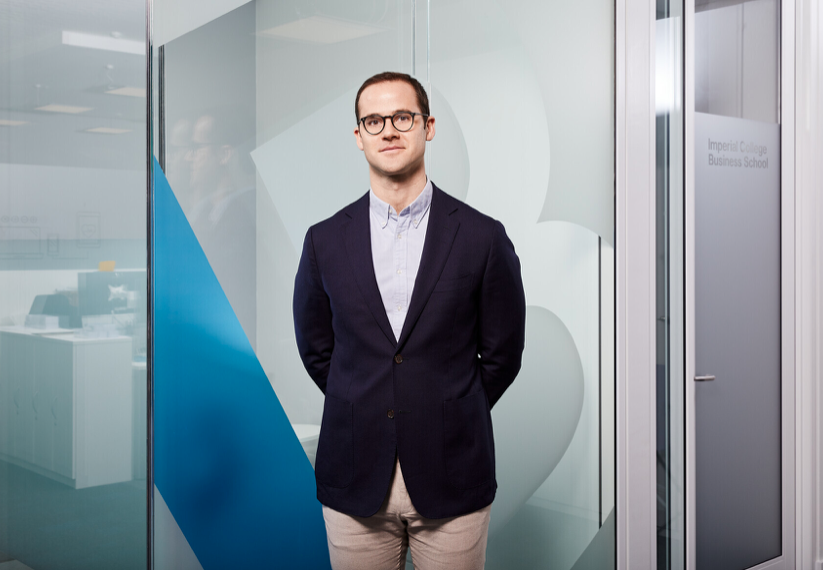

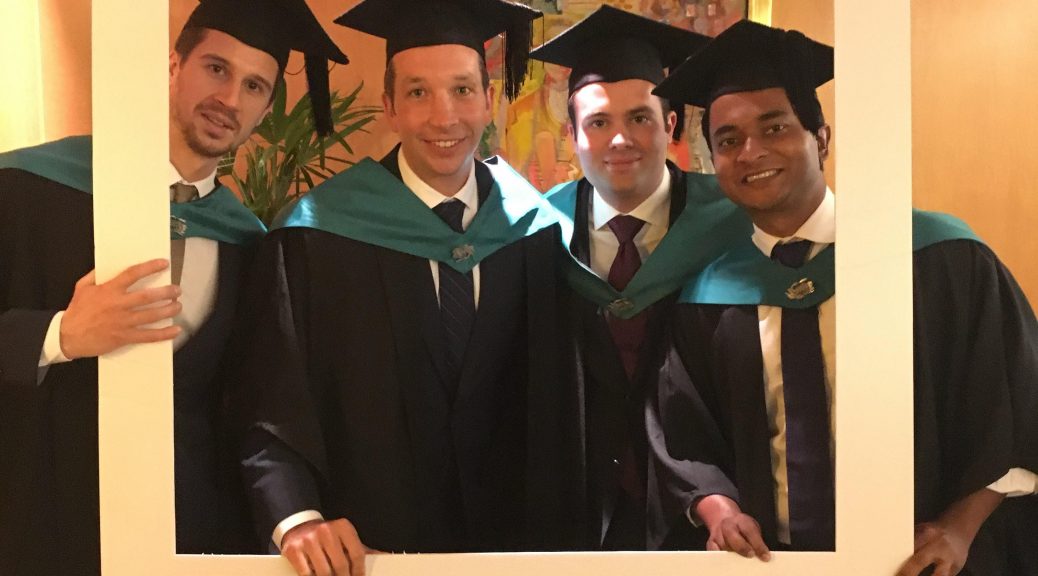

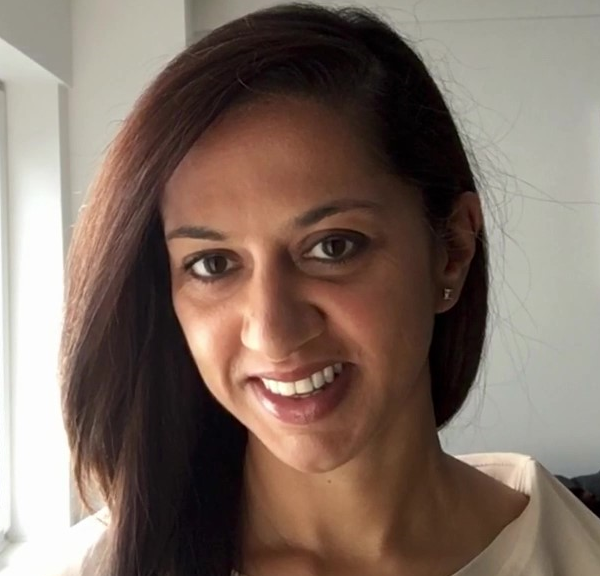
 Davina Patel is one of 375 professional engineers who have been awarded our prestigious Sainsbury Management Fellows scholarship to study an MBA at a top tier business school. After gaining her MBA at London Business School, Davina has used her newly acquired business skills and insights as a catalyst towards an exciting new career. Davina has taken time out to talk to us about her early passion for engineering, her MBA experience, her career and lessons learnt along the way.
Davina Patel is one of 375 professional engineers who have been awarded our prestigious Sainsbury Management Fellows scholarship to study an MBA at a top tier business school. After gaining her MBA at London Business School, Davina has used her newly acquired business skills and insights as a catalyst towards an exciting new career. Davina has taken time out to talk to us about her early passion for engineering, her MBA experience, her career and lessons learnt along the way.